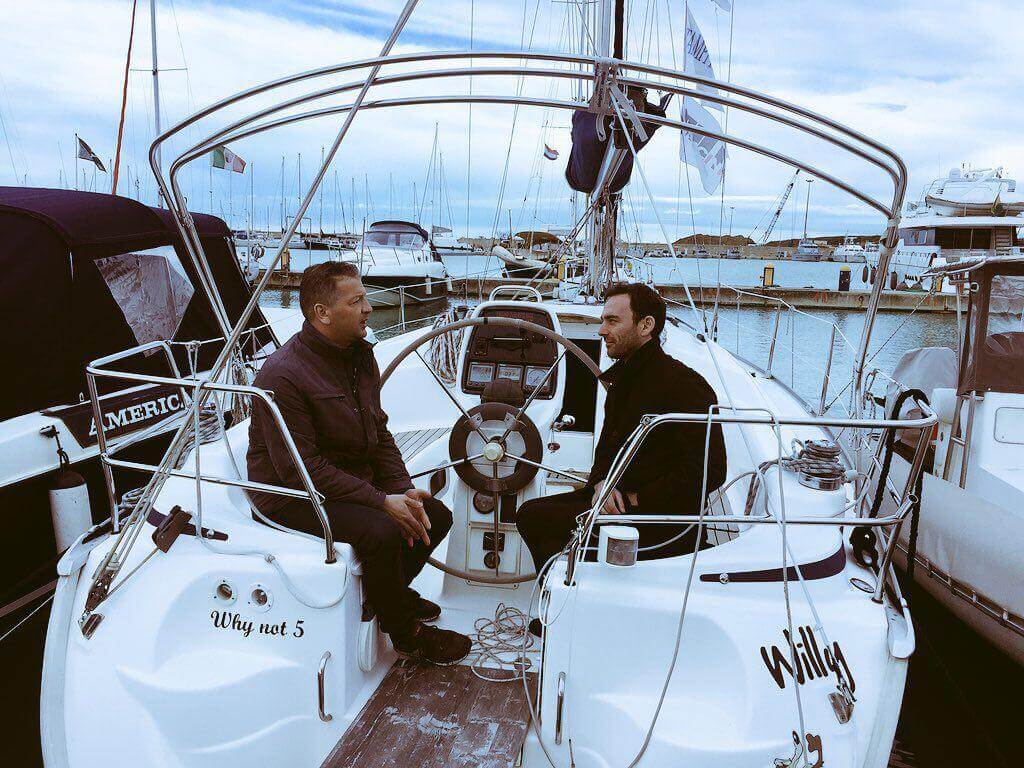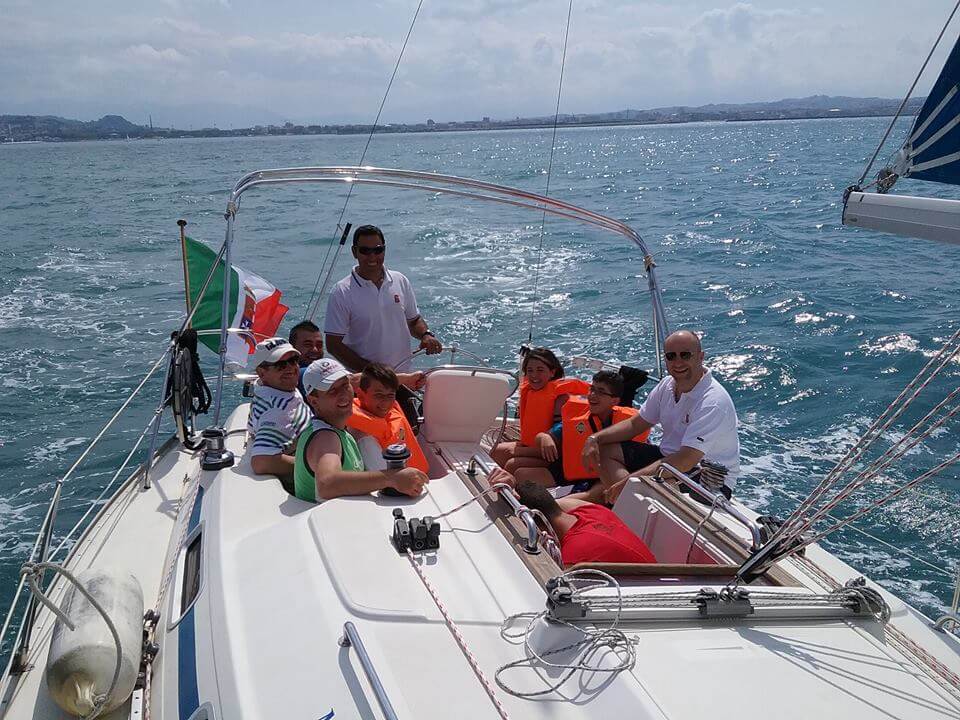*The following is an edited transcript of an interview conducted for European Alternatives’ forthcoming documentary, Demos: Solidarity in Europe.
European Alternatives: Tell us a bit about your work in Sail for Children. What exactly is it that you do?
Sail for Children: Here at Sail for Children we restore boats seized from the mafia and other criminals in order to provide ‘sailing therapy’ for disabled and autistic children. We take boats due for demolition, restore them and give them to the children to make different social projects.
EA: How did it come about?
SC: I’m a captain of motorboats and sailing yachts. During a tour around Italy in 2015 I stopped in the southern town of Roccella Jonica due to bad weather and I saw this boat with a ‘confiscated’ signal in the shipyard. I asked the owner of the shipyard the story and he told me that the boat was seized from people trafficking migrants, and that it was was due to be demolished in a month’s time. Before 2006, when the Italian authorities seized a boat, because it was used in smuggling drugs for example, it would go to auction after a year. At a certain point, though, the state realised the people buying the boats were the criminals themselves so they passed a law saying they had to be demolished. It seemed a waste, so I asked the government and the Italian navy if it would be possible to take the boat. It would still belong to the Italian navy, but I would pay for the maintenance to save it. We signed an agreement and now I pay for all the maintenance with private sponsorship to enable the initiative. For example with Reale Mutua Group that finances all the projects of the association since the first year of activity. The help of this insurance company together with Felicetti Massimo s.r.l., CMB Carpi, Maico and Stampiitalia make possible continuing the work we do.

EA: How many other boats do you have? Do you work beyond Pescara and Italy?
SC: Aside from the boat we are on now, we have other three other vessels: one in Ancona, one in Greece and one near Pescara that was also seized because of migrants. While our office is here in Pescara we work all across the Mediterranean Sea, in Greece, Turkey, Spain and France. For the people of sea it’s not important where you come from. You are not British, or French, or Italian. You are a sailor. I try to put this mentality in action.
EA: What is happening to the boat in Greece now? What is the plan for that?
SC: That boat was stopped in Rhodes for similar reasons for the one we found in Italy. There were migrants inside so the Greek police stopped the sailor and the boat. I asked a judge in Greece for the assignment of this boat, because it’s a 46 footer, and I think it will go ahead. At the moment the boat is in the port of Syros. For now I will keep it in Greece for the costs, because shipyards in Italy are more expensive than there.

EA: This is a very interesting project in the way it mixes different aspects of solidarity, especially the connection between migration, organised crime and then solidarity in this case with disabled children, autistic children. What does the concept of solidarity mean to you?
SC: This is a very good question. At the moment, as is well known, Italy is a door to Europe for all those fleeing North Africa, Syria, Libya and so on. But here solidarity is too often instrumentalized for political purposes. We have just been through an election campaign which was based on migration and on a collective panic about it. Few are open to talking about solidarity because we are living through a moment in which it seems almost bad to practice it. The majority of Italians think that migrants are a danger rather than a resource.
For me, as I said before, having lived on the sea and sailed all over the Mediterranean for my job, I learnt that one doesn’t look at nationalities, skin colours or the content of someone’s pockets. We try to show we are friends, we are all equals. If a hand needs to be given, we give it. If we need to ask for help we do so, with no problems. For me this is solidarity: that moment when you manage to give and receive help.
EA: From the sea we get a good lesson on how to stay human also on land…
SC: Yes, in fact now we are working with schools along with coastguards to run some projects on the environment, legality and migration. I remember a Lieutenant Commander told the youngsters once, “when you are on the sea, you have a duty to offer help and rescue”, in the wider framework of the discourse on migration and rescue missions that the coastguard is carrying out in the channel of Sicily. One boy, replied “How is this a duty? Nobody sees you, so you can easily avoid rescuing!” For those who sail, this is unconceivable. It’s not an option to not offer rescue. You do it full stop. I think this is a very important point: the idea that giving a hand doesn’t need to be seen to be useful.
![Political Critique [DISCONTINUED]](https://politicalcritique.org/wp-content/uploads/2015/09/Political-Critique-LOGO.png)
![Political Critique [DISCONTINUED]](https://politicalcritique.org/wp-content/uploads/2015/09/Political-Critique-LOGO-2.png)